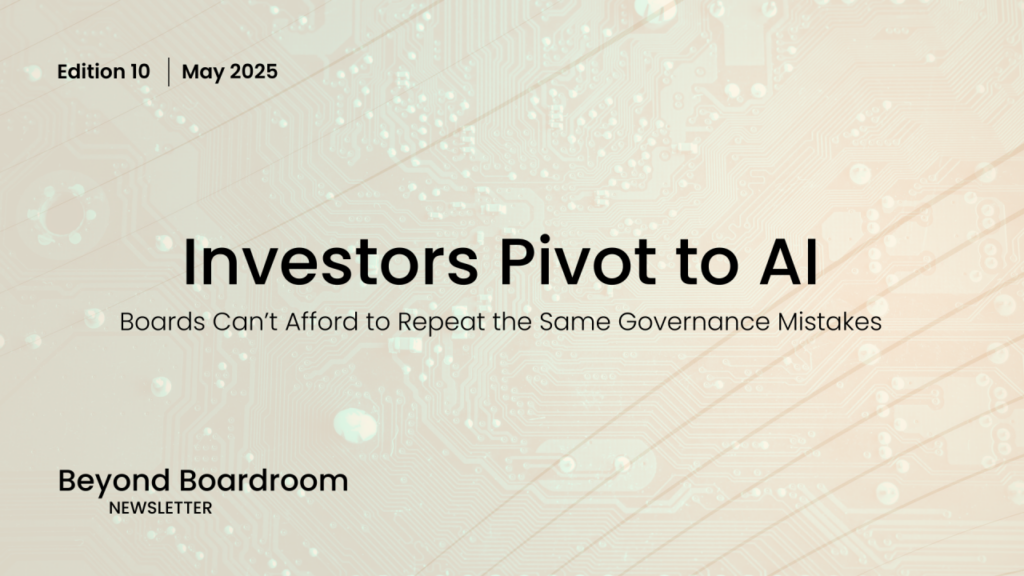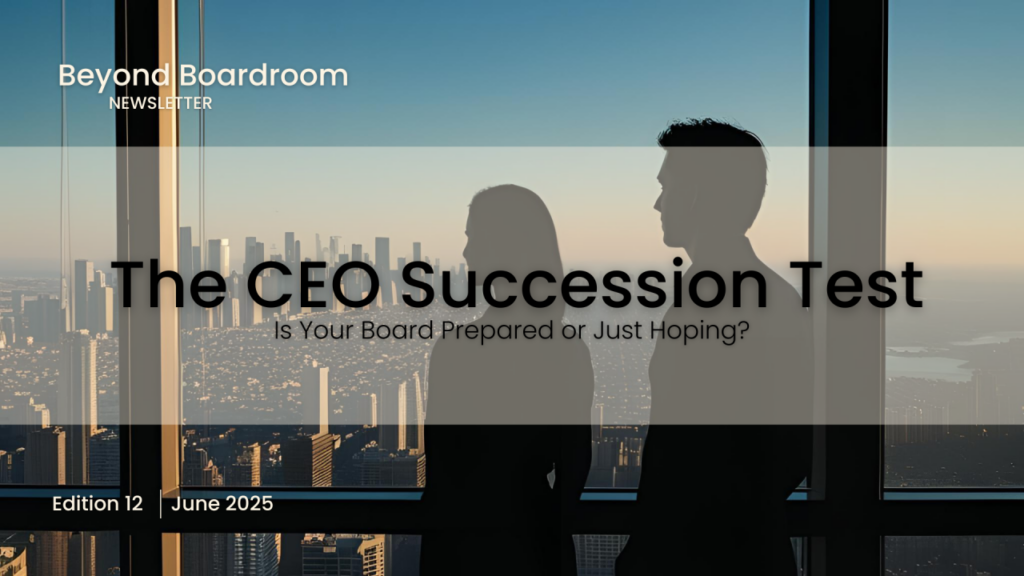“Governance is nothing new, even if AI is.”
That’s the thought I keep circling back to as I watch the shift in investor sentiment. AI has arrived in the boardroom with urgency, even anxiety. Investors are filing resolutions. Companies are scrambling for frameworks. Tech giants are being pushed on transparency, ethics, and accountability.
But let’s not get caught up in thinking this is unprecedented.
Governance has always been about managing the unknown. We’ve seen this playbook before: climate risk, financial crises, cybersecurity. The pace may be different this time. The principles remain the same.
What we’re witnessing is not just a wave of concern about AI. It is a moment of reckoning for what corporate governance is for.
Recent shareholder votes show growing appetite for AI oversight. At the same time, there is a notable drop in support for climate, biodiversity, and social justice proposals. It is not necessarily a shift in values, but a telling indicator. Some risks feel governable. Others feel exhausted.
AI feels novel. Climate fatigue has set in. But both are deeply entangled.
So how should boards respond?
This is the deeper governance challenge:
How do you govern what you don’t yet fully understand but can’t afford to ignore?
A few thoughts:
- Move from scenario planning to systems thinking
AI risks don’t exist in a vacuum. They are threaded through labour practices, misinformation, environmental extraction, and inequality. Treating AI as a siloed issue misses the point. It amplifies all existing ESG risks.
- Rebuild oversight for ambiguity
We need governance structures that flex. Structures designed not for certainty, but for continuous learning. Traditional oversight models are too slow for the pace of AI. Iteration must replace inertia.
- Anchor innovation in purpose
AI decisions shouldn’t just be technically sound. They should be ethically aligned. Boards must ask: how does this serve our purpose? If that question isn’t central, purpose is just decoration.
- Reconnect with society’s licence to operate
Trust is hard-won and easily lost. With AI, the margin for error is razor-thin. Boards are no longer just managing shareholder risk. They are managing public trust. Governance is how that trust is maintained.
AI governance is not about mastering code. It is about mastering judgement.
It is not asking for new principles. It is demanding we apply the old ones with greater courage.
Until next time, stay grounded, listen well, and lead better,
Erika.



